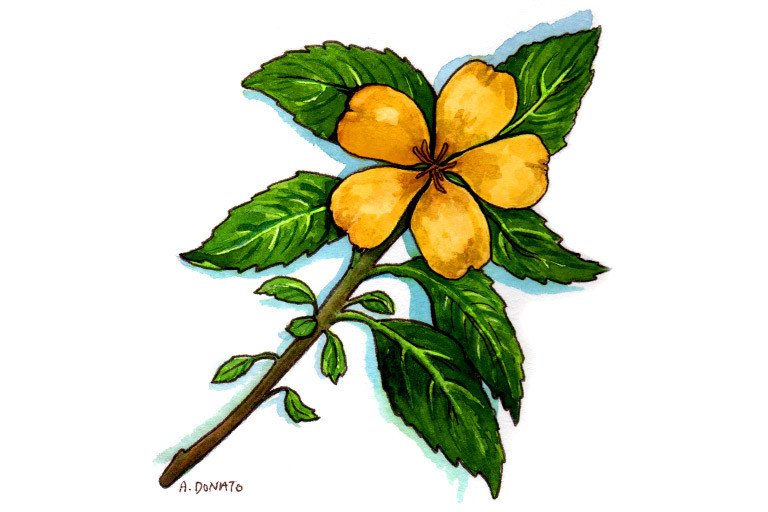
For Patients & Caregivers
Tell your healthcare providers about any dietary supplements you’re taking, such as herbs, vitamins, minerals, and natural or home remedies. This will help them manage your care and keep you safe.
There is limited evidence of Damiana's stimulant effects. It has not been shown to treat cancer in humans.
Damiana is a wild shrub found in Mexico, Central America and parts of South America. It is used in traditional medicine as a diuretic, laxative, stimulant, aphrodisiac, and also to treat diabetes and venereal diseases. Animal studies show that damiana can reduce anxiety and affect sexual behavior but there are no human data. Damiana has also not been studied in cancer patients.
- Diabetes
Damiana may affect blood sugar level based on animal studies. - Sexual dysfunction
Traditional use is widespread. A small study in women with sexual dysfunction showed that ArginMax, which contains damiana, improved sexual function. - Anxiety
Data from studies done on mice show that damiana reduced anxiety but human studies are lacking. - Constipation
There are no data to substantiate this use. - Kidney disorders
No scientific evidence supports this use. - Menstrual disorders
Traditional use is widespread but there are no data to validate this use.
For Healthcare Professionals
Damiana is a wild shrub prevalent in South America. It is used in traditional medicine as a diuretic, laxative, stimulant, aphrodisiac and for treating diabetes and venereal diseases. Damiana showed anxiolytic (1) (17), antidepressant (17), hypoglycemic (7) (9), anti-ulcer (15) as well as cytotoxic (16) effects; and stimulated sexual behavior (3) (13) (14) in preclinical models. Whether it has estrogenic effects is not clear as findings are mixed (8) (12).
Small studies suggest formulations containing damiana may induce weight loss (5) and produce short-term effects on caloric intake (18) in overweight adults, improve menopausal symptoms (19), and sexual function in post-menopausal women (20). Confirmatory research is needed.
Of note, damiana is used in the botanical formulation ArginMax (4), which is marketed as a treatment for female sexual dysfunction.
- Diabetes
- Sexual dysfunction
- Anxiety
- Constipation
- Kidney Disorders
- Menstrual Disorders
Damiana’s anti-ulcer activity is believed to be due to the inhibition of lipid peroxidation, immuno modulation and antioxidant effects of its major constituent, arbutin (15). In other studies, a damiana extract and pinocembrin and acacetin, compounds derived from the herb, suppressed aromatase activity. Other compounds including apigenin 7-glucoside, Z-echinacin and pinocembrin demonstrated estrogenic activity (12).The pro-sexual activity of damiana was shown to involve the nitric oxide pathway, with the anxiolytic property of the herb thought to contribute to such effects (14).